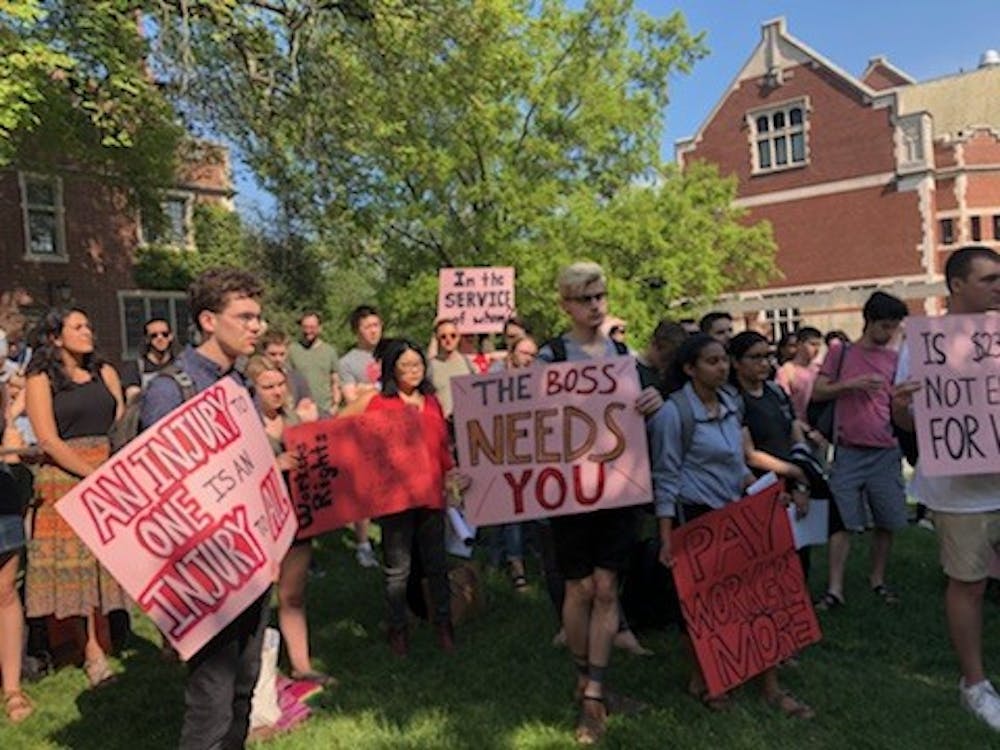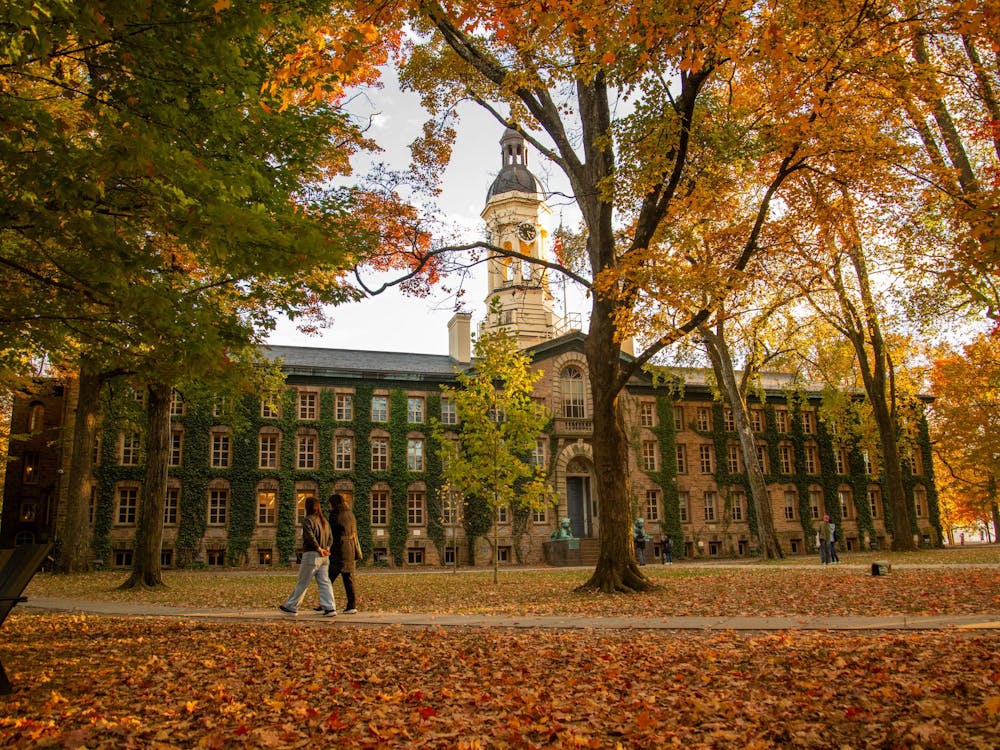On Wednesday, May 9, campus staff members shared testimonies of job uncertainty, low wages, and sexual harassment during a town hall organized by the Young Democratic Socialists with the approval of Service Employees International Union, Local 175. The town hall comes in the lead-up to contract negotiations in June. Approximately 50 students were in attendance.
“These are the people that clean buildings, feed you, and generally give you a home feeling,” SEIU president Thomas Parker said to the students to kick off the testimonies.
Many worker testimonies — some anonymous because of fear of retaliation — revealed that working at the University is a double-edged sword.
“Working for Princeton is a privilege,” Kathy Mikos, who works in Dining Services, explained. “But there’s a dark side also.”
For many of the workers who testified, this “dark side” includes intimidation by the management, favoritism, being overworked, and low wages.
One testimony which dealt with sexual harassment recounted two cases of sexual misconduct that a worker brought forward against two of her managers. Only the second of the two cases had the manager dismissed. The testimony was read by a YDS member to preserve anonymity.


In the first case, the manager was inappropriately touching, hugging, and kissing the worker. But, despite opening a grievance procedure in the union and talking with Human Resources, the case against the manager was dismissed and the worker was assigned to work under him for Reunions that same year and at least for one day during Reunions every year since.
The second case involved the worker being inappropriately addressed by someone who she believed acted knowing her previous harasser got off without punishment. On advice of a legal defense fund, she recorded his inappropriate behavior and filed a Title IX suit, which was successful.
Many workers also spoke about how the culture of the University — at least among workers — has changed significantly over the decades.

Al Kornegay, a Building Services worker, recalled that when he was hired 38 years ago, he was a part of the “University family.”
“Nowadays you’re not part of the family; you’re part of a business,” he said.
SEIU vice president Rich Wilder echoed these remarks, saying that working at the University is now simply a place where a worker can “punch in and punch out.”

In another testimony, also read by a member of YDS to preserve anonymity, the YDS member described the worker as feeling like she “ceases to be a real person” when she puts on her uniform. The worker doesn’t look forward to going to work daily.
The worker specifically spoke about the lack of appreciation and acknowledgement for her job, which she has been doing for 32 years. The worker noted the importance of the work that she and her coworkers do.
“This place would fold [without us],” the testimony read.
Some of the testimonies also lamented the lack of resources that the University provides them.
One Building Services worker who introduced himself as Vincent talked specifically about the lack of accommodations provided to essential workers during snowstorms in March 2017, when employees were made to sleep on cots in Frist Campus Center.
He described the accommodations as akin to being “packed together like sardines.”
“We’re not animals,” he said. “We’re workers.”
He noted that having to stay overnight at the University wasn’t a problem. The problem was that the University couldn’t accommodate essential workers with a proper place to sleep.
One custodian who wrote an anonymous testimony said that, for custodians, accommodations during severe weather conditions have been particularly horrible. Often, they have no accommodations or toiletries, as outlined by their union contract. Instead, they would sleep in their car, truck, or even a corner in a building.
The Daily Princetonian has previously reported on inadequate housing at the University in preparation for storms, as well as a change in housing for such storms from the previous year.
Another worker with Building Services, who introduced himself as Erik, said that his team is understaffed. He said he is particularly worried at the prospect of working on the Lake Campus expansion while understaffed.
“This is a great university, but the expansion that’s going on here — 1.5 million square feet of building space has been built — and they’ve only increased our staff from six to eight people,” he said.
Intimidation and bias within management were also key issues that were brought up during the event.
Kornegay said that, as a known “union troublemaker,” he has been involved in multiple confrontations with management where he felt that he was disrespected. In one situation, he was allegedly threatened with violence.
“You can’t just sit there and yell at us and cuss at us and threaten us with violence,” he said. “I had an incident where a manager threatened to punch me out. But when you go to Human Resources, he makes an excuse,” he said.
Dining Services worker Marie Daniel, known affectionately as “Momma Marie,” spoke about the bias from management during evaluations where employees are rated on their performance at the end of each year. She said she finds that evaluations are not based on performance as much as they are on the manager’s personal feelings towards a worker.
“If you’re not their [management’s] friend, they try to put you down,” she said. “It hurts.”
A worker in an anonymous testimony said that, in her building, tables and surfaces can be clean, but managers sometimes try to find small amounts of dust on the surface in order to justify not giving workers what would otherwise have been a perfect evaluation. Wage increases are tied to the workers' evaluations.
Despite the obstacles that they go through, many workers at the event expressed gratefulness for the support of the students. Parker described the support as “inspiring” for the staff, and many workers who gave testimonies at the event often emphasized the need for students to support them when negotiations begin.
“I believe that from the first brick laid here, labor’s been here, labor is here, we are labor,” Wilder added.
In a previous version of this article, the procedure taken by the worker in the first sexual misconduct case was misrepresented. The ‘Prince’ regrets the error.








